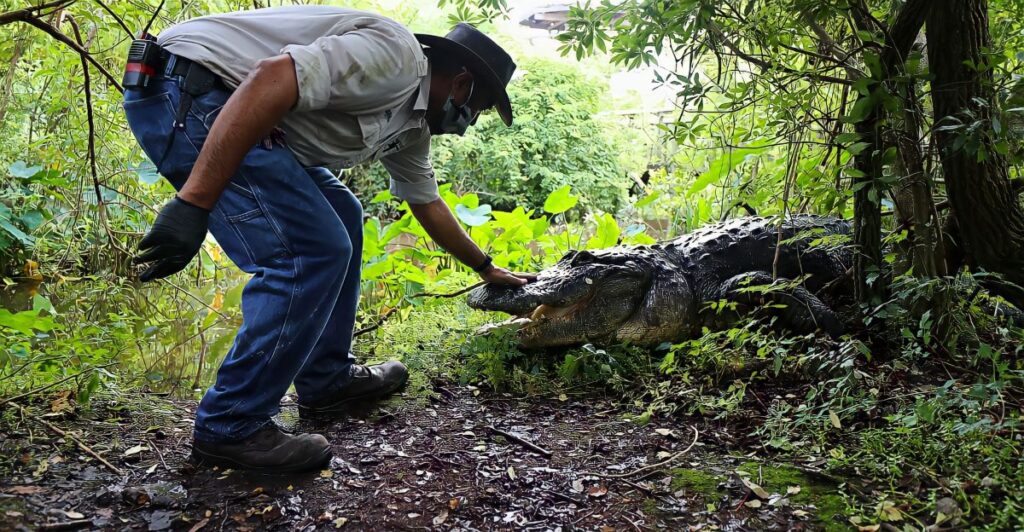
Alligators are most active from late spring through early fall, which marks alligator season. As temperatures rise, alligators leave their winter hideouts to bask, mate, and nest. Because of this increased activity, they are more likely to be seen near water sources, crossing roads, or even venturing into residential areas close to their natural habitats. Understanding their seasonal behavior is very important for your safety.
During mating and nesting, alligators become very territorial and aggressive, especially females who are guarding their nests. Recognizing these patterns can help you plan your outdoor activities more safely. It is also very important to stay updated with local wildlife advisories, as authorities often provide timely warnings and guidelines. Awareness of alligator season is important. It is your first line of defense and will help you avoid unnecessary risks and enjoy the outdoors responsibly.
Recognizing Alligator Habitats
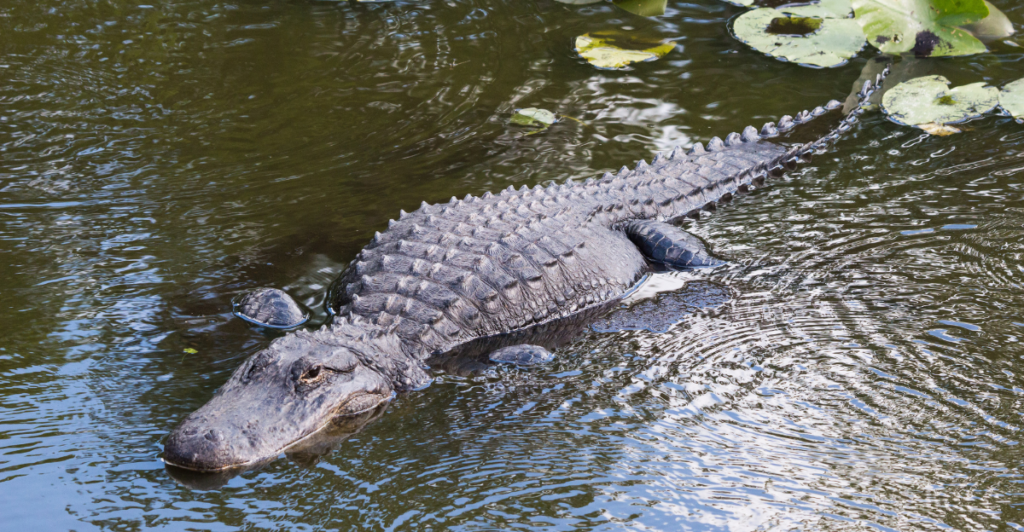
First, it is important to be able to recognize alligator habitats. These creatures thrive in freshwater environments like lakes, ponds, rivers, swamps, and marshes. They prefer areas with dense vegetation and muddy banks, which provide cover and nesting sites. If you are near water in a region that is known for alligators, you should always assume that they could be present, even if you don’t spot one.
Be on the lookout for slide marks on muddy banks, which indicate recent alligator activity. You should also avoid letting your pets roam near tall grass or reeds by the water’s edge. These are very common hiding spots for alligators. You should look out for warning signs posted by local authorities and never ignore them. By learning how to recognize and respect alligator habitats, you can avoid accidental encounters.
Keeping a Safe Distance
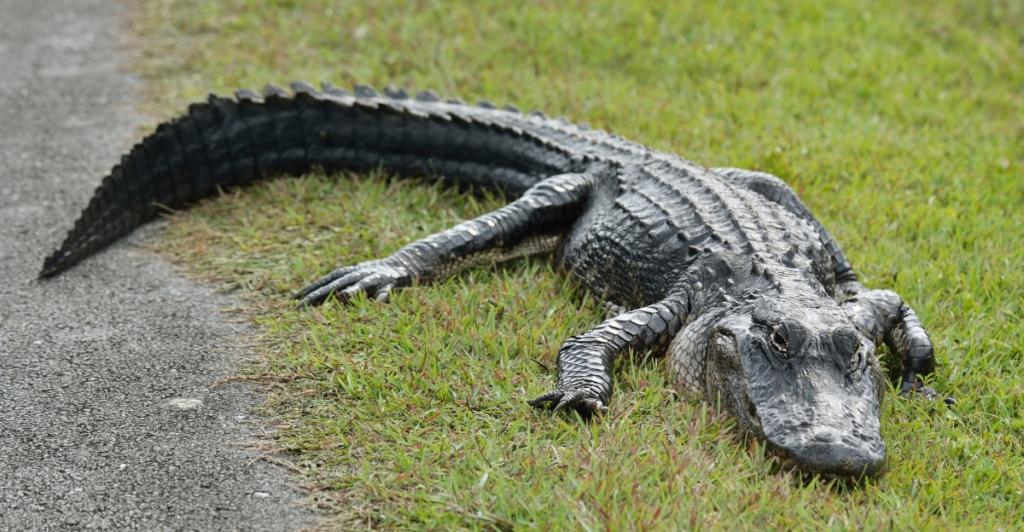
If you happen to come across an alligator, then maintaining a safe distance is essential for your safety. Experts recommend staying at least 30 to 60 feet away from any alligator you encounter. You should never approach an alligator, even if it seems sluggish or uninterested. These creatures can move surprisingly fast over short distances.
If you encounter an alligator and it hisses, lunges, or moves toward you, it means you are too close. Back away slowly, and do not turn your back. You should be especially cautious around nests or baby alligators, as mothers are extremely protective and will defend their young aggressively. Respect their space and avoid taking photos up close. Keeping your distance is the most effective way to prevent dangerous situations.
Avoiding Risky Activities
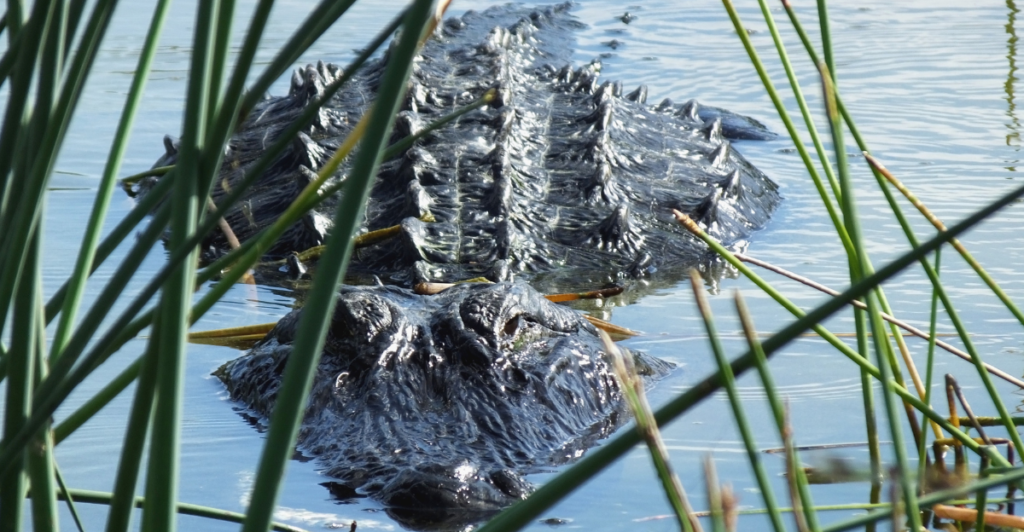
Certain activities significantly increase your risk of encountering alligators, and these activities should be avoided at all costs. Never swim or wade in freshwater lakes, rivers, or ponds unless you are in a designated swimming area with posted safety measures. Alligators are usually active at dusk, night, and dawn. You should avoid any water activities during these times.
You should also not fish, clean fish, or dispose of fish scraps near the water’s edge because the smell will attract alligators. You should also avoid camping close to water. Always set up your campsite at least 164 feet from the shoreline and keep your food sealed and garbage secured. You should be cautious while launching boats or kayaks and never dangle arms or legs in the water.
Protecting Children and Pets
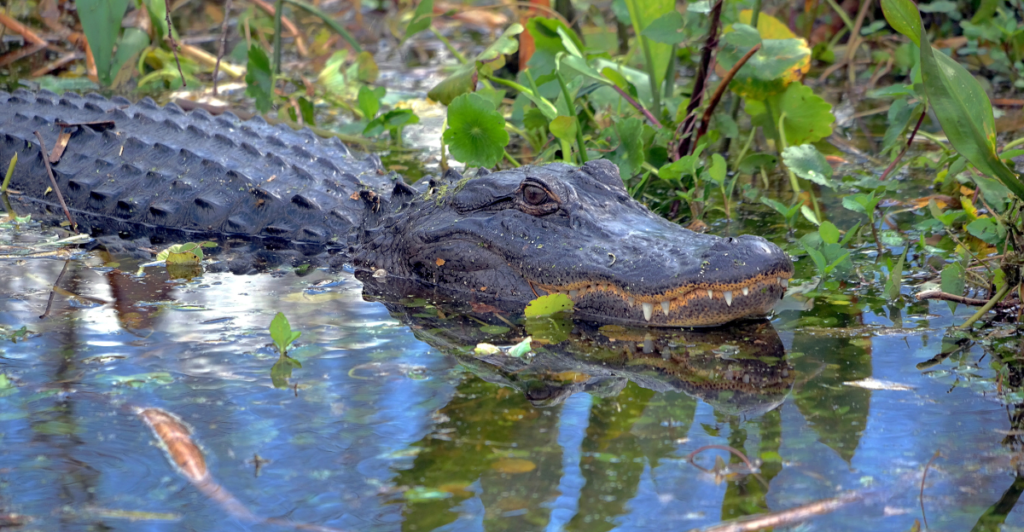
Children and pets are the most vulnerable to alligator attacks because of their size and curiosity. You should also supervise children closely when you are near water in an alligator territory. Never let them run or play close to shorelines. You should also teach them to recognize warning signs and to stay away from the water’s edge. Educate them about the dangers of alligators.
Keep your pets on a short leash and prevent them from swimming, drinking, or fetching objects from the water. Alligators do not distinguish between pets and wild prey, which makes pets an easy target. If your pet enters the water, don’t try to rescue it yourself; call for help instead. You should establish clear rules for outdoor activities and reinforce them regularly.
Never Feed Alligators
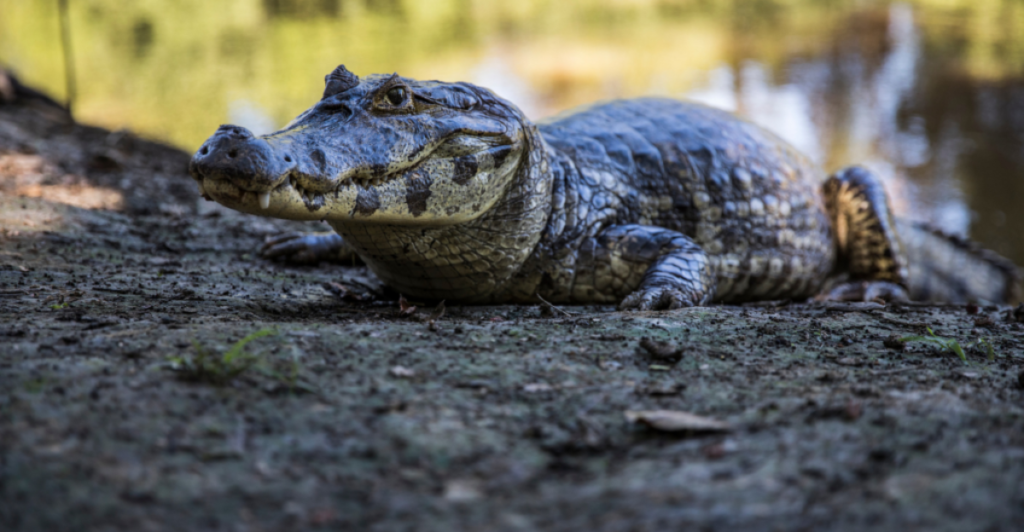
You should never feed wild alligators. Feeding these creatures is illegal in many areas and is extremely dangerous. When humans feed alligators, they lose their natural fear and could begin to associate people with food, increasing the risk of aggressive encounters. You should never toss food, fish scraps, or leftovers into the water or close to the shoreline.
Feeding ducks or other wildlife in alligator habitats can also attract these predators. If you see someone feeding an alligator, you should report it to local wildlife authorities immediately. Keeping alligators wild and wary of humans is very important for everyone’s safety. Remember: a fed alligator is a dangerous alligator, and feeding them puts both people and animals at risk.
What to Do If You Encounter an Alligator
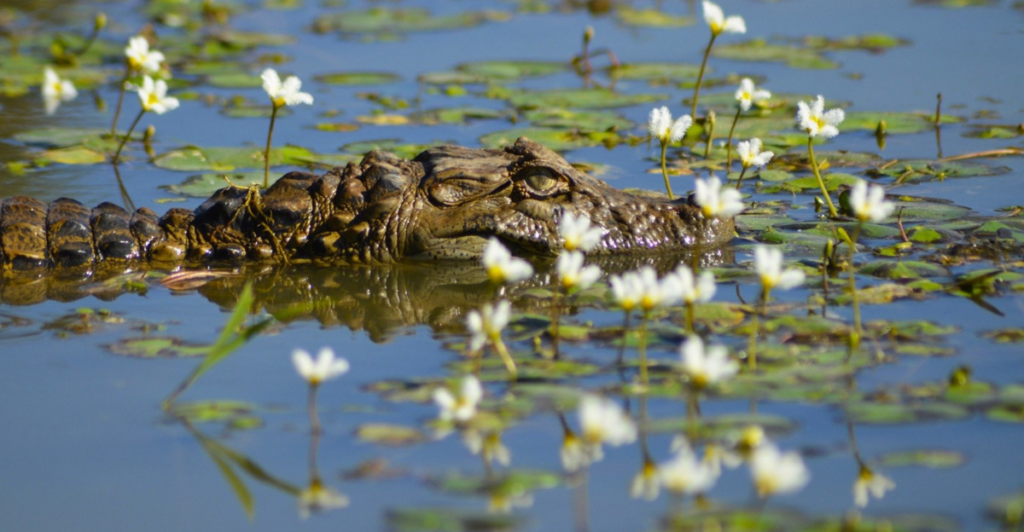
If you spot an alligator, you must remain calm and keep your distance. Do not approach, provoke, or attempt to move the animal. Avoid making sudden movements or loud noises because this can startle the alligator and trigger a defensive reaction. If you are kayaking or boating, paddle away quietly and avoid splashing.
Should an alligator approach, move in the opposite direction slowly and steadily. You should never run toward water or thick vegetation. If you hear an alligator hissing, you are too close; back away immediately. Teach children and companions how to respond calmly. By respecting an alligator’s space and avoiding confrontation, you significantly reduce the risk of an incident.
How to Escape an Aggressive Alligator
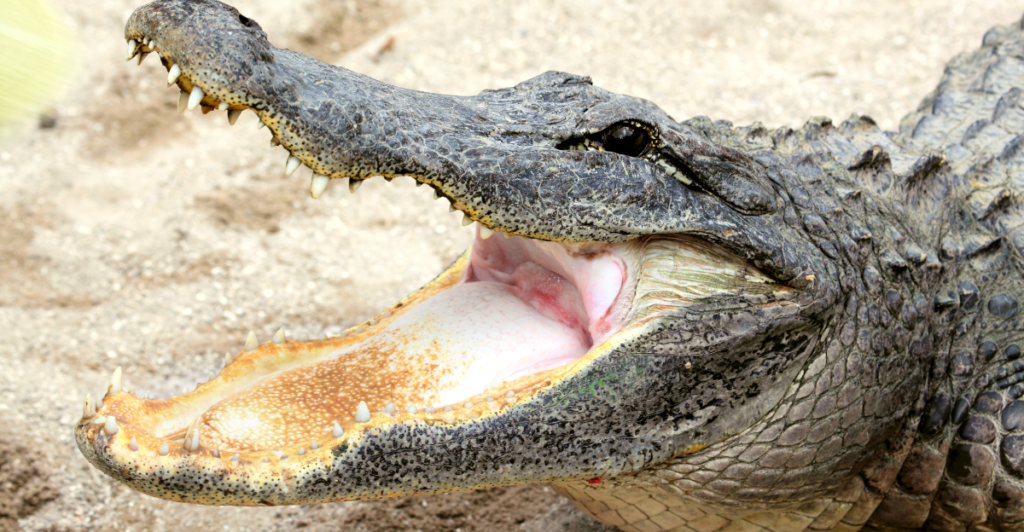
If an alligator charges at you on land, you should run away in a straight line as fast as you can. You should never zigzag because this only slows you down. You should make as much distance as quickly as you can. Alligators can sprint quickly but get tired after short distances. Never run toward water, as more alligators may be present.
If you are attacked, fight back aggressively. Target the alligator’s eyes, snout, and the sides of its head. These are its sensitive areas. Use any available object, like a stick or oar, to strike the animal. If the alligator tries to drag you underwater, jam objects into its mouth to trigger a gag reflex and escape. Your goal is to convince the alligator that you are not easy prey.
After an Attack—Immediate Actions
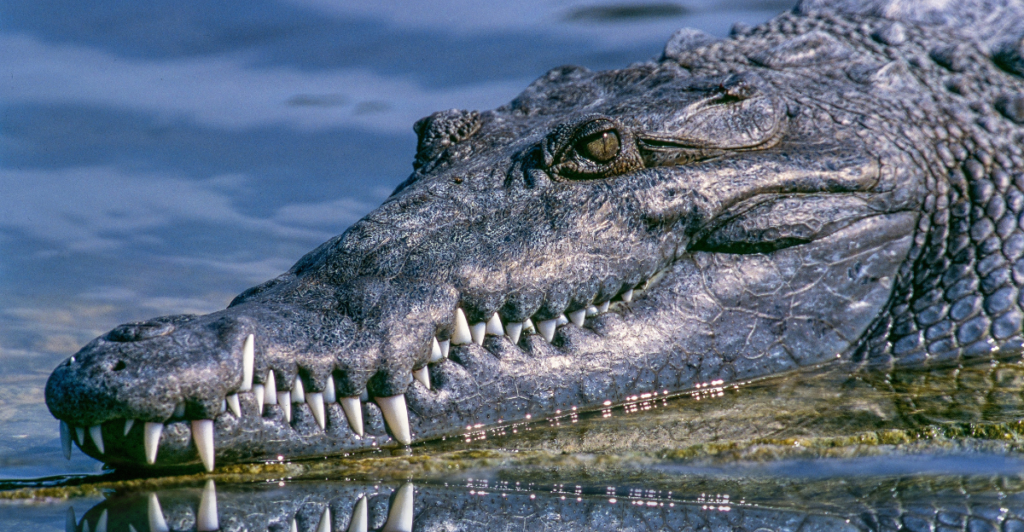
If an alligator ever bites you, do not stop fighting. Poke its eyes and punch and kick its head. Alligators often release their grip to reposition prey; use this moment to break free and get to land as quickly as possible. Once you are out of the water, scream for help, but do not let other people enter the water to assist you directly.
Alligator bites are very dangerous. They can cause severe injuries and carry a high risk of infection, which is why seeking medical attention immediately is very important, even for minor wounds. Clean the wound thoroughly and follow all medical advice. Report the attack to local wildlife authorities so they can investigate and help prevent future incidents. Quick, decisive action can save your life and aid others.
Reporting and Preventing Future Incidents

If you see an alligator in an unexpected place, like a yard or parking lot, keep your distance and contact local wildlife authorities. Never attempt to capture or move the alligator yourself, as this is dangerous and often illegal. Report any aggressive behavior or attacks immediately so professionals can handle the situation.
You should always stay informed about local advisories and educate your family, friends, and neighbors about alligator safety. Support community efforts to post signs and share information. By respecting wildlife, following guidelines, and spreading awareness, you help protect both people and alligators and ensure a safer coexistence during alligator season. Your vigilance can make a real difference.
Explore more of our trending stories and hit Follow to keep them coming to your feed!

Don’t miss out on more stories like this! Hit the Follow button at the top of this article to stay updated with the latest news. Share your thoughts in the comments—we’d love to hear from you!







